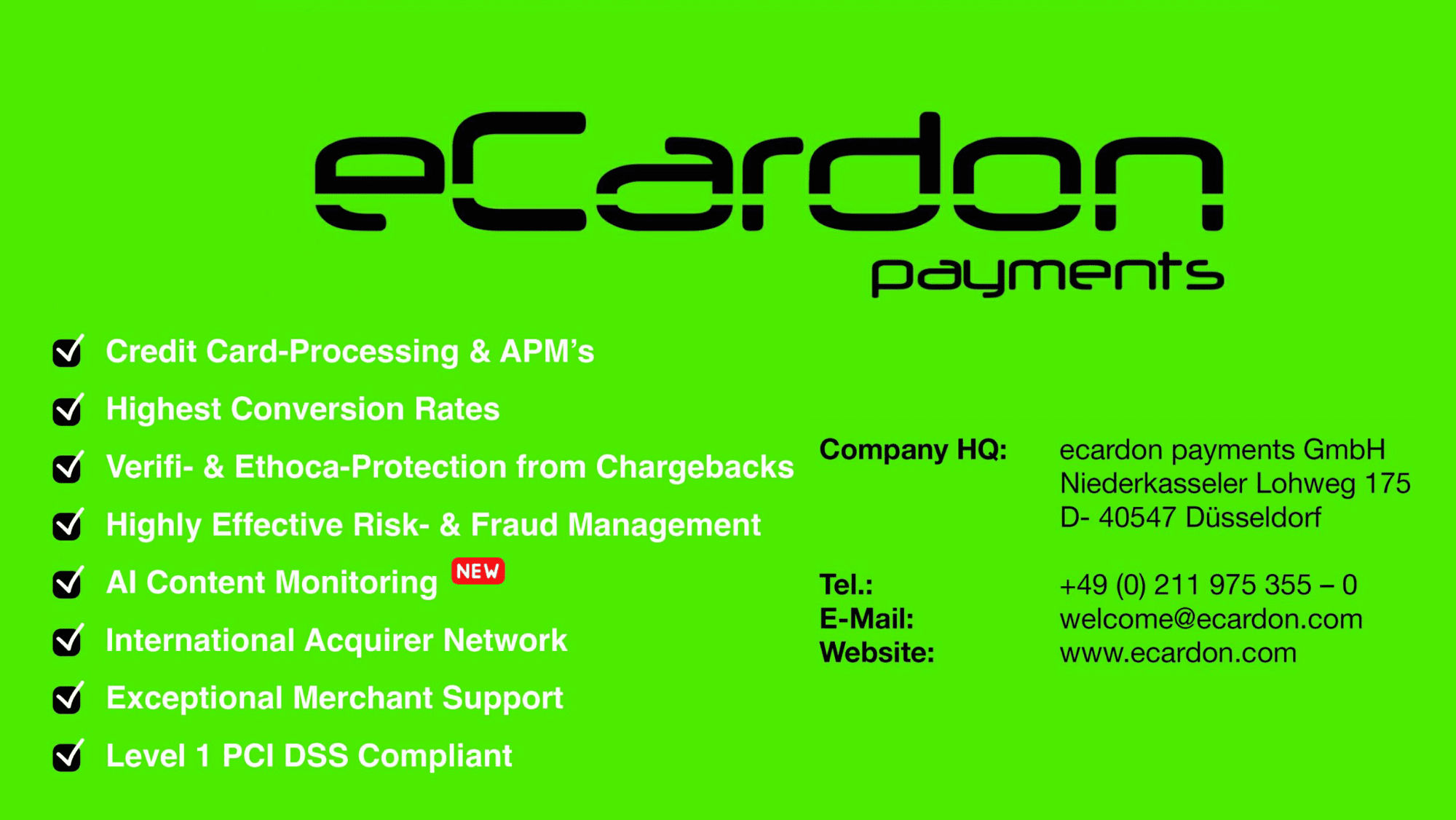
Event Sponsorship
Does Event Sponsorship Really Work and How Do You Choose the Right Kind?
Sponsorship is key to elevate and promote brands, as well as for the growth of a business. However, the right kind of sponsorship is crucial to ensure that your marketing budget is allocated wisely. There are two types of company when it comes to budget allocation. The first usually denotes a large business, which plans ahead (often at least 12 months in advance) and the second are those smaller businesses, who can afford to be a little more spontaneous with their marketing spends.
Do Your Research
Attracting the right kind of business from your sponsorship is essential for all business types, be it small or large. Much will depend upon how you wish people to perceive your brand. Sponsoring a late-night party with acrobats and models may not suit a company who provides banking facilities, in equal measure, a cam site trying to attract new models may not gain much from sponsoring the lanyards at a B2B event.
Understanding the event is the most important aspect, particularly finding out whether it is purely B2B, or mainly B2C. If you are looking to keep up with the latest trends and industry news, then an event which has a lot of seminars and speakers is fundamental to your choice. Take a good look at previous reviews for events and speak to others about their experiences of the individual events.
Follow speakers and events on social media and don’t be afraid to ask questions. The more informed you are, the more benefits you’ll receive.
Global Metrics
The location is also important, as companies will have different interests in the global market. If the event is based in the US and they have no business in that part of the world, they will not want to sponsor. However, if they are looking to expand into different economies, they might be interested in some of the larger events in other areas.
It’s important to have the right kind of information for companies who need to provide key metrics for budgeting. The marketing team will need to be convinced that the finance is being spent in the right areas. If the business is looking for new customers in the US, there is little point in spending on a B2B event in the EU. By the same token, if the event coverage is primarily in the EU, the US division will have virtually zero interest in participating.
If your business requires your sales and marketing team to reach out to new business, then having a booth or a stand is extremely important, as it allows attendees to find you easily. Flyers and business cards are crucial to ensure everyone can take something away with them for future reference.
What Kind of Swag Works?
You should provide swag which associates with your business and branding wherever possible. T-Shirts and Caps are great for promoting your logo or brand, but pens, notebooks and mousepads can often provide a more personal and direct connection (as they are normally placed in or around the workspace).
If you have a more Adult orientated brand, then think about the fact that a relatively large proportion of your swag won’t appear in public. It’s certainly true that more corporate brands tend to offer swag that is more commercial. Banking and payment companies for example might offer power banks, or card protectors. Whereas cam studios and dating sites prefer T-Shirts and Caps.
Providing worthwhile items do tend to be more noteworthy and provide your clients and potential customers with a meaningful reminder of your business.
The Importance of Being Ready
Ensure that your business plans align with the expectations. There is little point in spending on sponsorship, if you can’t handle the new business it will bring. Consider splitting your team so that only your top salespeople attend the conference, leaving enough staff ‘in the office’ to deal with the possible new business. This attention to detail will be appreciated and allow the focus on your new clients to be maintained 100%.
Ensuring that your salespeople take notes of all the relevant details surrounding the potential new business is an absolute must, especially when the event has 100’s or thousands of attendees. Notebooks or tablets are a great way to keep tabs on meetings and make summaries for future reference. You may think that you are going to recall everything you discussed but even after a couple of hours, you’ll be surprised how it all starts to meld!
Making Your Plans Crystal Clear
Business plans and schedules are crucial to ensure smooth running and correct budgeting. That doesn’t mean to say that plans cannot be altered but it does mean that at least 75% to 80% should be defined well ahead of time. The larger the company, the further into the future they forecast and plan. If things go well during the first quarter of your financial year, then you can always look to increase the budget for the second and third quarter. However, if things don’t work out as well as anticipated and you have no schedule, you cannot revise moving forward. It’s all too easy to overspend (especially in areas that do not bring benefits). Every event should have a cost plan and post event a summary which contains your profit and loss.
Some of the benefits may not be apparent right away as leads have to followed up and the real business done but you should have a fair idea of how many potential leads, customers and new business you have obtained. Take stock and be prepared!
Contact PayOutMag for more information on sponsoring events in your area.

Which Countries Are Currently the Best for Setting Up Your Global Business?
Key factors to consider when choosing a country for global business
When considering the best countries for setting up a global business, economic stability and growth potential are paramount factors. Countries with solid economic foundations provide a favorable environment for investment and expansion. For instance, Singapore is recognized as one of the wealthiest countries globally, boasting a robust economy and significant growth prospects. The economic stability of a nation often correlates with its ability to sustain business operations during downturns and uncertainties. Additionally, countries like the United States and Germany have been identified as top destinations for international business expansion, offering both a large market and a diverse economy that fosters innovation and entrepreneurship. Thus, evaluating economic indicators and growth forecasts can guide business leaders in making informed decisions about where to establish their global ventures.
The regulatory environment and ease of doing business are also critical considerations when selecting a country for global operations. A favorable regulatory landscape can significantly enhance an organization’s ability to operate efficiently and effectively. Rankings from sources like The World Bank reveal that countries like Luxembourg, Switzerland, and Sweden are recognized for their business-friendly regulations, which include transparent tax systems and streamlined bureaucratic processes. These nations rank high in terms of ease of doing business, which encompasses factors such as starting a business, obtaining permits, and protecting minority investors. Therefore, understanding the regulatory framework of potential countries can help entrepreneurs navigate challenges and capitalize on opportunities more effectively.
Access to markets and supply chains plays a vital role in determining the suitability of a country for global business operations. A country’s geographic location, infrastructure, and trade agreements can greatly influence logistical efficiency and market reach. For example, Vietnam has emerged as a stable and rapidly developing destination for international business, attracting foreign investment due to its advantageous position in Asia and expanding market access. Furthermore, countries with developed supply chains can facilitate smoother operations and reduce transportation costs, thereby enhancing profitability. By analyzing market accessibility and supply chain dynamics, businesses can position themselves strategically to maximize their global footprint and leverage new opportunities for growth.
Overview of the top countries for global business in 2023
The United States stands out as a premier destination for setting up a global business in 2023, primarily due to its innovation and vast market size. As the largest economy in the world, the U.S. offers an unparalleled consumer base, which is crucial for businesses looking to scale quickly. The entrepreneurial spirit in the U.S. is supported by a robust ecosystem of venture capital, research institutions, and technology hubs, particularly in cities like Silicon Valley. Moreover, the country is home to a diverse population that fosters creativity and innovation. This combination of factors makes the United States an attractive location for international expansion, as businesses can leverage both market size and innovative resources to gain a competitive edge.
Singapore’s strategic location and business-friendly policies make it a leading choice for global business operations. Nestled at the crossroads of major shipping routes, Singapore provides companies with unmatched access to the Asian market, which is vital for businesses aiming for regional expansion. Additionally, the country boasts a highly developed free-market economy characterized by low corruption and stable prices. Singapore’s government actively supports foreign investments through competitive corporate tax rates and over 80 double taxation avoidance agreements, making it easier for businesses to thrive. This combination of strategic advantages creates an ideal environment for companies looking to establish a foothold in Asia.
Germany emerges as an excellent option for businesses due to its strong economy and highly skilled workforce. As Europe’s powerhouse, Germany offers a stable political and economic framework, which is essential for long-term business success. The country is known for its industrial prowess and innovation, supported by a workforce that is among the largest pools of skilled labor in the EU. Furthermore, Germany’s social market economy ensures a high quality of life and a wealthy consumer base, making it conducive for various types of businesses. This environment not only attracts foreign investments but also encourages sustainable business practices, solidifying Germany’s reputation as a prime location for global enterprises.
Emerging markets with potential for global business expansion
India has emerged as a key player for international business expansion, primarily due to its rapid growth and large consumer base. As the world’s fastest-growing major economy, India has shown impressive growth rates, making it an attractive destination for global businesses seeking new opportunities. The country’s economic progress is significantly attributed to relaxed restrictions on foreign investment, which has encouraged both local and international enterprises to set up operations. Additionally, India ranks 40 out of 100 in the World Competitiveness Ranking, reflecting its potential as a favorable environment for businesses. This combination of factors creates a unique landscape where companies can tap into a vast market of over a billion consumers, thus driving their global business ambitions.
Brazil stands out as an excellent market for businesses looking to expand internationally, thanks to its diverse economy and rich resources. As the largest economy in South America, Brazil offers a wealth of opportunities for exporters and investors alike. The country is renowned for its abundant natural resources, being the world’s largest producer of coffee, sugarcane, and oranges. Furthermore, Brazil’s economy is relatively diversified, which mitigates risks associated with reliance on a single industry. Its strategic position in the global market, coupled with evolving trade policies, enhances its attractiveness for businesses aiming to establish a foothold in South America. As a result, Brazil not only provides a robust consumer market but also a dynamic environment for international business ventures.
Vietnam is rapidly establishing itself as a premier destination for international business and foreign investment, particularly in the manufacturing sector. The country’s rise as a global manufacturing hub is largely driven by the China+1 strategy, which encourages businesses to diversify their supply chains away from China. Manufacturing contributes significantly to Vietnam’s economy, accounting for over 20 percent of its GDP. Additionally, the Vietnamese government offers a stable business environment, competitive labor costs, and numerous multilateral free trade agreements, making it an attractive location for foreign direct investment. As companies seek to optimize their operations and reduce costs, Vietnam’s growing prominence as a manufacturing hub positions it as a key player in the global business landscape.
How Do You Choose the Right Forex Payment Solution for Your Business?

The different types of Forex payment solutions
Bank transfers and wire services are among the most traditional methods for conducting foreign exchange payments. While these methods allow businesses to transact like locals, they typically come with high fees, ranging from 3-5% of the total amount transferred. Despite the cost, bank wire transfers are well-regarded for their strong security procedures, which safeguard funds throughout the transaction process. This makes them a reliable choice for businesses that prioritize security over cost. Additionally, bank transfers can be utilized for both domestic and international transactions, providing flexibility for businesses operating across borders. However, companies should carefully consider the associated fees and processing times when evaluating this payment solution.
E-wallets and digital payment platforms have emerged as a popular choice for many businesses engaged in forex trading due to their efficiency and security. These platforms facilitate instantaneous fund transfers, which is a crucial advantage for businesses that require quick access to their funds. Moreover, e-wallets offer a user-friendly interface and often come with lower transaction fees compared to traditional bank transfers. Businesses can also benefit from enhanced security measures, as these platforms typically employ advanced encryption technologies to protect sensitive financial information. With the ability to support multiple currencies and provide seamless integration with trading platforms, e-wallets can significantly streamline the payment process for businesses operating in the forex market.
Cryptocurrency payment options are gaining traction in the forex payment solutions landscape, providing businesses with an innovative alternative to traditional methods. As digital currencies become more widely accepted, they offer unique advantages such as lower transaction fees, faster processing times, and enhanced privacy. Many cryptocurrency payment processors, including BitPay and Coinbase, enable businesses to accept payments in various cryptocurrencies, which can be converted to fiat currency as needed. This flexibility allows businesses to cater to a growing demographic of tech-savvy customers who prefer using cryptocurrencies for transactions. However, companies should remain aware of the volatility associated with cryptocurrency values and ensure they have appropriate safeguards in place to manage this risk effectively.
Evaluating transaction costs and fees
When evaluating transaction costs and fees associated with forex payment solutions, it is essential to compare the fee structures of various providers[6]. Different payment gateways may have distinct pricing models, including flat fees, percentage-based fees, or a combination of both. For instance, some platforms may charge lower transaction fees but impose higher monthly subscription costs, while others may offer a pay-as-you-go model that can be more cost-effective for businesses with fluctuating transaction volumes. Understanding these variations enables businesses to select a payment solution that aligns with their transaction patterns and financial goals, ultimately minimizing costs and enhancing profit margins.
In addition to the standard fees, businesses must also be vigilant about hidden charges and currency conversion fees that can significantly impact their overall expenses[8]. Many forex payment solutions incorporate additional costs that may not be immediately apparent, such as bank charges, intermediary fees, or unfavorable exchange rates. For instance, a payment gateway might advertise competitive transaction fees but then impose substantial currency conversion fees when processing cross-border transactions. It is vital for businesses to conduct thorough research and request a transparent breakdown of all potential charges from payment providers to avoid unexpected costs that can erode profits.
The impact of transaction costs on profit margins cannot be overstated, especially for businesses engaged in high-volume forex payment processing. Even minor discrepancies in fees can accumulate over time, leading to a significant financial burden on a company’s profitability. For example, a business that processes thousands of transactions monthly could face substantial losses if hidden fees and unfavorable exchange rates are not accounted for. Therefore, companies should prioritize selecting payment gateways that not only offer competitive pricing but also provide clarity regarding all associated costs. By carefully analyzing transaction costs, businesses can ensure they maintain healthy profit margins while effectively managing their forex payment processes.
Assessing security features and compliance
When selecting a Forex payment solution, the importance of encryption and data protection cannot be overstated. Security should always be the top priority, as financial transactions are highly sensitive and vulnerable to cyber threats. Payment processors that are PCI DSS compliant ensure that they meet rigorous security standards to protect cardholder data. Furthermore, implementing robust encryption technologies safeguards sensitive information during transmission, making it difficult for unauthorized parties to access it. By prioritizing these security features, businesses can significantly reduce the risk of data breaches and build trust with their clients, leading to a more secure transactional environment.
Regulatory compliance and licensing represent another critical aspect when choosing a Forex payment solution. The best Forex payment gateway should adhere to financial regulations and anti-money laundering (AML) laws, which help prevent fraud and protect both the business and its customers. For example, in the UK, all Forex businesses must be registered with HM Revenue & Customs and authorized by the Financial Conduct Authority. Ensuring that a payment provider complies with relevant regulations not only mitigates legal risks but also enhances the credibility of the business in the eyes of potential clients. A compliant provider demonstrates a commitment to ethical practices, which can be a significant factor in customer decision-making.
The reputation and reliability of payment providers are also essential factors to consider. A dependable Forex payment gateway should have a proven track record of customer service and reliability, allowing businesses to process payments smoothly without interruptions. Evaluating the provider’s reputation can involve reading reviews and testimonials from other businesses to gauge overall satisfaction and performance. Additionally, it is important to assess the payment provider’s ability to support multiple payment methods, such as credit cards and e-wallets, ensuring flexibility for clients around the globe. A reputable provider not only enhances operational efficiency but also contributes to a positive customer experience, ultimately benefiting the business in the competitive Forex market.
How Important Are Awards for the Feel-good Factor?

The psychological impact of receiving awards
Receiving awards can significantly boost self-esteem and confidence, creating a powerful psychological impact on individuals. The joy experienced from being recognized for one’s efforts often reinforces a sense of worth that is contingent upon external validation. When individuals achieve recognition through awards, they are more likely to view themselves positively, leading to enhanced self-esteem. This positive self-perception enables people to handle adversity more effectively, fostering resilience in the face of challenges. Ultimately, this boost in self-confidence can transform how individuals approach various aspects of their lives, from personal relationships to professional pursuits.
Awards also serve as a validation of efforts and achievements, enhancing the intrinsic value of the work done. This recognition acts as a powerful feedback mechanism, affirming that one’s hard work and dedication have been acknowledged by others. Such validation not only fosters a sense of accomplishment but also strengthens one’s belief in their capabilities. For example, in academic settings, student recognition has been shown to positively impact retention and success rates, illustrating how critical acknowledgment can be in motivating individuals to continue striving for excellence. Therefore, receiving an award can solidify the connection between effort and success, reinforcing a commitment to future endeavors.
Moreover, the motivation for future endeavors is significantly enhanced by the positive reinforcement that awards provide. When individuals receive recognition, it creates a sense of accountability and encourages them to maintain or elevate their performance levels. This motivational boost can lead to increased engagement in both personal and professional settings, inspiring individuals to pursue further achievements. For instance, employees who feel valued and recognized are more likely to go the extra mile, contributing to a positive work environment and heightened productivity. By establishing a culture of recognition, organizations can effectively cultivate motivation, ultimately leading to sustained success and satisfaction among team members.
The social implications of awards on individuals and communities
Awards play a significant role in strengthening community bonds and recognition among individuals. When individuals are acknowledged for their achievements, it fosters a sense of belonging and camaraderie within the community. This recognition boosts morale by making individuals feel valued and appreciated for their contributions, which can lead to enhanced motivation and productivity. Furthermore, the act of celebrating achievements collectively can create a positive atmosphere that encourages collaboration and teamwork. For instance, when team members are recognized for their hard work and receive awards, they often report heightened happiness at the workplace, which can ripple out to the broader community.
The impact of awards extends beyond community recognition; they also significantly influence career progression and opportunities. Winning an award can enhance an individual’s credibility and reputation within their industry, often providing a competitive edge in job markets. Such accolades serve as tangible evidence of hard work and dedication, opening doors to new career advancements and opportunities. For example, in various fields, individuals who have received awards are more likely to be considered for promotions and leadership positions, as these honors signal their commitment to excellence and innovation. This professional validation not only boosts the awardees’ self-esteem but also inspires others in their field to strive for similar recognition.
Moreover, awards can act as a catalyst for positive change and inspiration within communities and organizations. They encourage individuals to showcase their talents and contributions, driving a culture of excellence and motivation. When people witness their peers being recognized for outstanding work, it can ignite a desire to pursue excellence themselves. This effect is particularly pronounced in environments that value volunteering and philanthropy, where awards can highlight contributions that make a difference in society. As individuals and teams seek to achieve recognition, they often engage in initiatives that not only enhance their skills but also contribute to the greater good, fostering a spirit of inspiration and positive change throughout their communities.
What are the advantages of setting up a business in Cyprus or Malta?

Favorable tax regimes in Cyprus and Malta
One of the most appealing aspects of setting up a business in Cyprus and Malta is their competitive corporate tax rates and incentives. Cyprus boasts a low corporate income tax (CIT) rate of 12.5%, making it one of the most attractive locations for businesses within the European Union. Additionally, the Seed Investment Scheme provides tax relief to start-ups, encouraging growth and access to financing for small and medium-sized enterprises (SMEs). Malta, on the other hand, offers a unique structure where the effective tax rate can be as low as 5% after refunds, which positions it as one of the countries with the lowest corporate tax rates in the EU. This combination of low tax rates and incentives fosters a favorable environment for both local and international businesses seeking to maximize their profitability.
In addition to their favorable corporate tax rates, both Cyprus and Malta benefit from extensive double taxation treaties (DTTs) that protect businesses from being taxed twice on the same income. Cyprus has established DTTs with over 60 countries, allowing for reduced withholding taxes on dividends, interest, and royalties paid to foreign entities. This network not only facilitates international trade but also enhances the attractiveness of both locations for foreign investors seeking to optimize their tax liabilities. Similarly, Malta offers a robust framework of DTTs, which enables companies to operate more efficiently across borders without incurring excessive tax burdens. These treaties are essential for businesses aiming to expand globally while minimizing their tax exposure.
Another significant advantage of setting up a business in Cyprus or Malta lies in their VAT advantages and exemptions. Both countries have implemented VAT systems that are compliant with EU regulations, yet they offer various exemptions that can benefit businesses. For instance, Malta has exemptions for certain services and goods, which can lead to substantial cost savings for companies operating in sectors like tourism and education. Cyprus also provides incentives such as exemptions from VAT for specific activities, including international shipping and aircraft leasing. These VAT advantages not only enhance the overall financial viability of businesses but also make these jurisdictions appealing for entrepreneurs looking to minimize their tax liabilities while enjoying a strategic location within the EU market.
Strategic geographic location
One of the primary advantages of setting up a business in Cyprus or Malta is their strategic geographic location, which provides access to both European and Middle Eastern markets. This central positioning allows companies to efficiently engage in international trade relations and reach diverse consumer bases across these regions. The proximity to key markets means that businesses can benefit from reduced shipping times, lower logistics costs, and better market responsiveness. Cyprus, in particular, is noted for its advantageous location as a gateway to Europe and beyond, making it an appealing option for companies looking to expand their reach within the EU and the Middle East. This accessibility can facilitate partnerships, trade agreements, and the overall growth potential of a business.
Beyond market access, the connectivity and transportation infrastructure in Cyprus and Malta further enhance their attractiveness for business operations. Both countries boast modern airports and well-connected shipping ports, which facilitate the movement of goods and personnel. For instance, Cyprus has developed a robust transportation network that includes reliable air and sea routes, allowing businesses to maintain efficient supply chains. Additionally, the availability of high-speed internet and telecommunications services ensures that companies can operate seamlessly in an increasingly digital marketplace. This infrastructure not only supports day-to-day operations but also positions businesses for long-term growth in an interconnected global economy.
Another significant benefit of setting up a business in Cyprus or Malta is their proximity to other business hubs in the region. Companies can easily access major cities and financial centers in Europe, facilitating networking opportunities and collaboration with other enterprises. For example, Malta’s location allows businesses to connect with Italian, Spanish, and North African markets, while Cyprus serves as a bridge to the Middle East and Asia. This interconnectedness creates a conducive environment for startups and established companies alike, fostering innovation and the exchange of ideas. Furthermore, the presence of various international companies in these regions can lead to beneficial partnerships and potential synergies that can enhance business operations and growth prospects.
Supportive business environment and infrastructure
One of the primary advantages of setting up a business in Cyprus or Malta is the robust government support and incentives available for startups. Both countries have established favorable tax regimes that attract entrepreneurs, with Cyprus offering a low corporate tax rate of 12.5% and incentives for research and development. Additionally, the government provides grants and funding programs aimed at fostering innovation and growth among new businesses. This supportive environment is further enhanced by political and economic stability, which creates a reliable framework for investment and entrepreneurship. As a result, new ventures can thrive in a landscape that encourages business development through various supportive measures.
The availability of a skilled workforce is another critical factor that makes Cyprus and Malta attractive locations for business setup. Both countries benefit from a highly qualified workforce, with a significant portion of the population being multilingual, particularly in English. This linguistic capability facilitates effective communication in international markets and enhances the ability of businesses to operate globally. Moreover, the education systems in both nations produce graduates equipped with the skills needed in various sectors, including technology, finance, and tourism. As businesses expand, having access to a talented labor pool becomes essential for driving innovation and maintaining competitive advantage.
Quality of life and business-friendly regulations in Cyprus and Malta contribute significantly to their appeal for entrepreneurs. The low cost of living in both countries allows business owners and their employees to enjoy a comfortable lifestyle while maintaining lower operational costs. Furthermore, the regulatory environment is designed to be accommodating to businesses, with streamlined processes for registration and compliance. This combination of factors creates a conducive atmosphere for both work and life, making it easier for entrepreneurs to focus on their ventures without the added stress of bureaucratic hurdles. Ultimately, these elements combine to create an attractive business environment that encourages growth and sustainability.
















